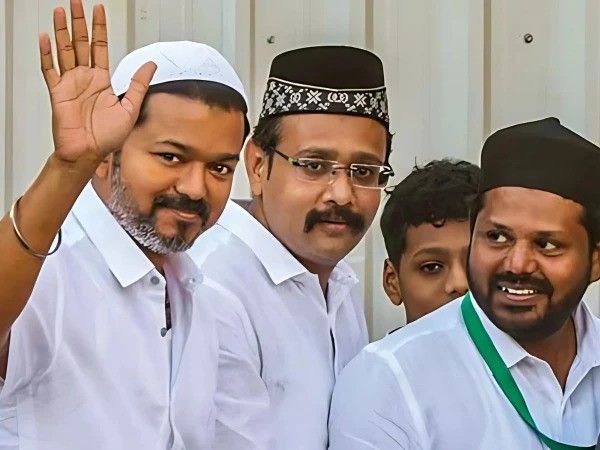
Indian cinema’s most-paid superstar, Vijay Thalapathy, has made a daring move against the Modi government’s controversial Waqf Bill by filing a petition with the Supreme Court of India. Being the representative of his political party, Tamizha Vetri Kazhagam, the South Indian actor has opposed the bill, labeling it discriminatory against Muslims as well as against fundamental rights.
In his petition, as party president, Vijay Thalapathy stated that the bill discriminatorily targets Muslims and infringes on constitutional provisions of equality and religious freedom.
Previously, during the sacred month of Ramadan, the actor had gone out of his way to identify with Muslims by fasting, joining iftar parties, and saying his prayers—an act that was given wide publicity and appreciation by the Muslim community.
His gestures of interfaith concord have also raised speculation over whether he will convert to Islam, though the actor has not commented officially on this.
Vijay is not alone in his opposition to the bill. A number of political leaders and parties, such as Asaduddin Owaisi of the All India Majlis-e-Ittehad-ul-Muslimeen (AIMIM), the Congress Party, Aam Aadmi Party (AAP), Samajwadi Party, and Jamiat Ulema-e-Hind, have also lodged legal challenges against the Waqf Bill 2025.
Furthermore, a substantial number of legislators across various religious backgrounds—such as Hindu leaders and the Tamil Nadu Chief Minister—have opposed the legislation and presented petitions to the court, terming the bill as unjust and discriminatory.
The increasing legal opposition to the bill reflects its polarizing effect and the rising cohesion among India’s political and civil society leaders in upholding minority rights.
We welcome your contributions! Submit your blogs, opinion pieces, press releases, news story pitches, and news features to opinion@minutemirror.com.pk and minutemirrormail@gmail.com